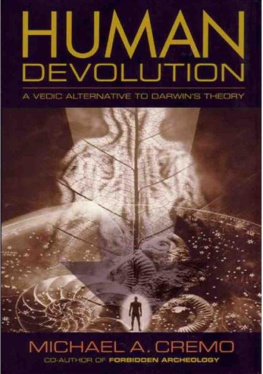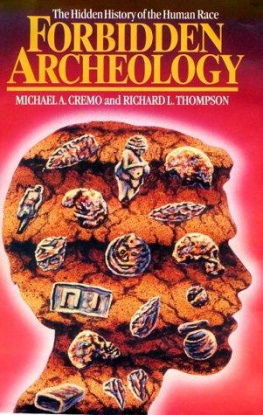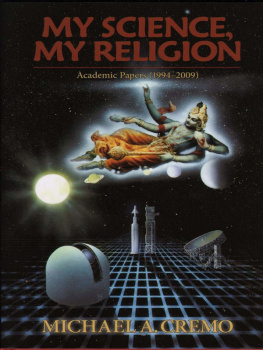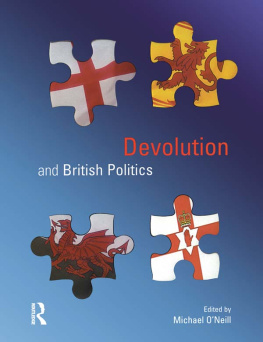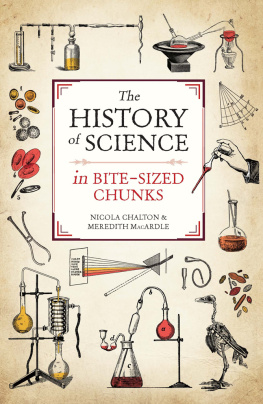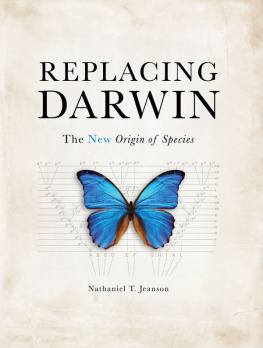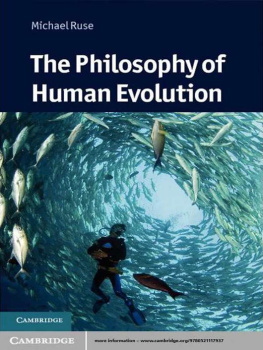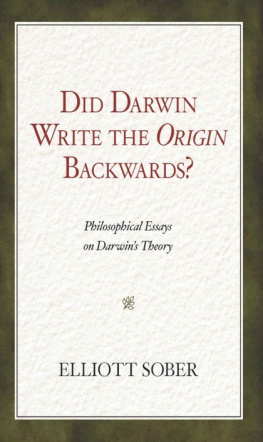Michael A. Cremo - Human Devolution: A Vedic Alternative to Darwins Theory
Here you can read online Michael A. Cremo - Human Devolution: A Vedic Alternative to Darwins Theory full text of the book (entire story) in english for free. Download pdf and epub, get meaning, cover and reviews about this ebook. year: 2003, publisher: Torchlight Publishing, genre: Romance novel. Description of the work, (preface) as well as reviews are available. Best literature library LitArk.com created for fans of good reading and offers a wide selection of genres:
Romance novel
Science fiction
Adventure
Detective
Science
History
Home and family
Prose
Art
Politics
Computer
Non-fiction
Religion
Business
Children
Humor
Choose a favorite category and find really read worthwhile books. Enjoy immersion in the world of imagination, feel the emotions of the characters or learn something new for yourself, make an fascinating discovery.
- Book:Human Devolution: A Vedic Alternative to Darwins Theory
- Author:
- Publisher:Torchlight Publishing
- Genre:
- Year:2003
- Rating:4 / 5
- Favourites:Add to favourites
- Your mark:
- 80
- 1
- 2
- 3
- 4
- 5
Human Devolution: A Vedic Alternative to Darwins Theory: summary, description and annotation
We offer to read an annotation, description, summary or preface (depends on what the author of the book "Human Devolution: A Vedic Alternative to Darwins Theory" wrote himself). If you haven't found the necessary information about the book — write in the comments, we will try to find it.
Human Devolution: A Vedic Alternative to Darwins Theory — read online for free the complete book (whole text) full work
Below is the text of the book, divided by pages. System saving the place of the last page read, allows you to conveniently read the book "Human Devolution: A Vedic Alternative to Darwins Theory" online for free, without having to search again every time where you left off. Put a bookmark, and you can go to the page where you finished reading at any time.
Font size:
Interval:
Bookmark:
HUMAN DEVOLUTION
A VEDIC ALTERNATIVE TO DARWINS THEORY
MICHAEL A. CREMO
Dedicated to
His Divine Grace
A. C. Bhaktivedanta Swami Prabhupada
om ajnana-timirandhasya jnananjana-shalakaya caksur unmilitam yena tasmai shri-gurave namah
My book Forbidden archeology , coauthored with Richard L. Thompson, documents archeological evidence for extreme human antiquity, consistent with the Puranas , the historical writings of ancient India. This evidence places a human presence so far back in time as to call into question the Darwinian account of human origins.
In his review of Forbidden archeology published in Geoarchaeology (1994 v. 9, pp. 337340) , Kenneth Feder said, When you attempt to deconstruct a well-accepted paradigm, it is reasonable to expect that a new paradigm be suggested in its place. The authors of Forbidden archeology do not do this, and I would like to suggest a reason for their neglect here. Wishing to appear entirely scientific, the authors hoped to avoid a detailed discussion of their own beliefs.
It is not true that my coauthor and I were trying to avoid a detailed discussion of our own alternative account. Rather we were hoping to ignite just such a discussion. But some practical considerations compelled us to proceed in stages. In my introduction to Forbidden archeology , I wrote: Our research program led to results we did not anticipate, and hence a book much larger than originally envisioned. I was genuinely surprised at the massive number of cases of archeological evidence for extreme human antiquity that turned up during my eight years of historical research. Forbidden archeology went to press with over nine hundred pages. Because of this, I wrote in the introduction, we have not been able to develop in this volume our ideas about an alternative to current theories of human origins. We are therefore planning a second volume relating our extensive research results in this area to our Vedic source material.
Human Devolution: a vedic alternative to Darwins theory is that second volume. The reasons for its late appearance have more to do with the time it takes to research and write such a book rather than any desire to avoid a detailed discussion of a Vedic alternative to Darwinism.
Nevertheless, I am not unhappy that Human Devolution appeared after Forbidden archeology rather than along with it. Before presenting an alternative to the Darwinian concept of human origins, it is reasonable to show that one is really necessary. I have therefore welcomed the chance to introduce to scientists and other scholars the evidence in Forbidden archeology before moving on to systematically presenting an alternative. After hearing the Forbidden archeology presentations, many ask, If we did not evolve from the apes, then what alternative explanation do you propose? To them, I reply, Do you admit a new explanation is required? If not, I have more work to do in showing that one is required. And if you do admit that a new explanation is really required, then it is not just my responsibility to come up with a new explanation. It is also your responsibility. We should all be thinking about this. Of course, I have some ideas about what the explanation should be, but you should also.
My first scientific presentation of Forbidden archeologys evidence and Vedic perspective was in December of 1994 at the World Archaeological Congress in New Delhi, India. My paper Puranic Time and the Archeological Record, delivered in the section on time and archeology chaired by Tim Murray and D. P. Agrawal, drew a large, appreciative audience. That paper was later chosen for publication in the peer reviewed conference proceedings volume time and archeology, edited by Tim Murray and published by Routledge in its One World Archaeology series in 1999 (pp. 3848).
In March 1995, I presented my paper The Impact of Forbidden archeology at the Kentucky State University Institute for Liberal Studies Sixth Annual Conference on Science and Culture. This paper set forth the Vedic background for my research. It also reviewed the initial scientific reactions to the publication of Forbidden archeology.
In July 1996, I was invited by the Institute for the Study of Theoretical Questions of the Russian Academy of Sciences to lecture on Forbidden archeology in Moscow. I then spoke about my work at a symposium organized by the Institute for Oriental Studies of the Russian Academy of Sciences. After my presentation, Indologist Evgeniya Y. Vanina commented: I think that the statement you have made, and your paper, are very important because they touch upon... how to look at the texts of the classical tradition as sources of information. There is a tendency among scholars to say whatever the vedas and the Puranas, the Ramayana, and the mahabharata are saying, it is all myth and concoction, and there is no positive information in it.... I think that such a negativist attitude toward the ancient and early medieval Indian texts as sources of information should definitely be discarded. While I was in Russia, I was also invited to give a talk on Forbidden archeology to a large audience of physicists at Dubna, the science city outside Moscow. In October 1996, I spoke about the evidence in Forbidden archeology at the International Conference on Revisiting Indus Sarasvati Age and Ancient India in Atlanta.
In July 1997, in Lige, Belgium, at the XXth International Congress for History of Science, I presented a detailed study of one of the cases documented in Forbidden archeology . This paper, The Later Discoveries of Boucher de Perthes at Moulin Quignon and Their Impact on the Moulin Quignon Jaw Controversy, appeared in Proceedings of the XXth International Congress of History of Science, vol. X., earth Sciences, Geography, and Cartography, edited by Goulven Laurent and published by Brepols in 2002 (pp. 3956). In October of 1997, I presented lectures on Forbidden archeology to students and faculty of archeology, anthropology, and biology at the University of Amsterdam, the Free University of Amsterdam, the University of Leiden, the University of Groningen, the University of Utrecht, and the University of Nijmegen in the Netherlands, and at the Catholic University of Louvain and University of Ghent in Belgium. In November of 1997, I lectured on Forbidden archeology at universities in Hungary, including the Etvs Loran Science University in Budapest, the University of Szeged, and the University of Eger.
In January 1999, I presented a paper titled Forbidden Archeology of the Middle and Early Pleistocene at the fourth World Archaeological Congress in Cape Town, South Africa. In March and April, I gave lectures on Forbidden archeology at universities in England, Poland, Hungary, and the United States, including City University of London, the University of Warsaw, the University of Delaware, the University of Maryland, and Cornell University. In September 1999, I was invited to speak on Forbidden archeology at the University of Oklahoma School of Geology and Geophysics, as part of the Shell Oil Colloquium Series. Also in September I presented a paper titled Forbidden Archeology of the Paleolithic at the European Association of Archaeologists Fifth Annual Meeting at Bournemouth in the United Kingdom. The paper was selected for inclusion in a conference proceedings volume edited by Ana C. Martins for British Archaeological Reports (forthcoming).
In March 2000, I was invited to speak on Forbidden archeology in a lecture series of the Royal Institution of Great Britain, one of the worlds oldest scientific societies. The lecture was given in the Royal Institutions headquarters in London. Later that year, in September, I presented a paper titled The Discoveries of Carlos Ribeiro: A Controversial Episode in Nineteenth-Century European Archeology at the European Association of Archaeologists Sixth Annual Meeting, in Lisbon, Portugal. In November 2000, I lectured on Forbidden archeology at universities in Hungary.
Font size:
Interval:
Bookmark:
Similar books «Human Devolution: A Vedic Alternative to Darwins Theory»
Look at similar books to Human Devolution: A Vedic Alternative to Darwins Theory. We have selected literature similar in name and meaning in the hope of providing readers with more options to find new, interesting, not yet read works.
Discussion, reviews of the book Human Devolution: A Vedic Alternative to Darwins Theory and just readers' own opinions. Leave your comments, write what you think about the work, its meaning or the main characters. Specify what exactly you liked and what you didn't like, and why you think so.

